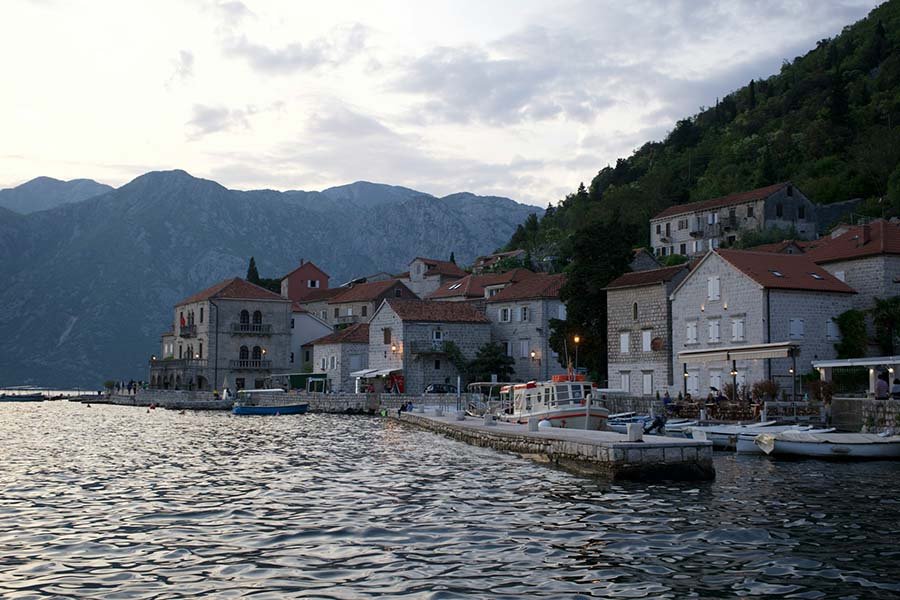Montenegro Residence Permits: New Rules for Obtaining and Renewal – Still in Draft

Photo: Unsplash
In the Montenegrin parliament, a draft law is under discussion that could change the rules for obtaining residence permits for digital nomads, foreign entrepreneurs, and many professionals. The proposal introduces electronic visas and tighter requirements for employers — in line with European standards.
The draft law has been published on the government portal. It, in particular, provides for a transition to an electronic system. Applications for short-term visas should be submitted no later than 15 days before travel, and for long-term visas — 60 days in advance. Applications for Montenegrin residence permits will also move to a digital format. For elderly people, persons with disabilities, and seriously ill foreigners, mobile services will be introduced to allow them to complete documentation without an in-person visit.
For entrepreneurs and company directors, the rules are becoming stricter. A residence permit will be granted only if the company conducts real business, meets tax obligations, and provides jobs. This closes the possibility of using “shell” companies solely to obtain a residence permit. The Diaspora portal notes that this change has become one of the most discussed. Many foreigners open companies in Montenegro and register as directors, which makes it easy to renew their residence permits. The format attracts businesspeople, freelancers, and those who want to live in the country without real employment but with legal status.
Article 35 of the draft states that a sole company owner or a shareholder with more than 51% must hire at least three full-time employees, and one of them must be a Montenegrin citizen. The requirements significantly increase costs for entrepreneurs. For startups or remote workers, this may be unaffordable, and for many, renewing their residence permits on this basis will become nearly impossible.
The draft could hit the Russian diaspora in Montenegro particularly hard. Some may try to switch to other types of residence permits, while many will have to leave the country. The situation is further complicated by the fact that the amendments prohibit changing the type of residence permit. In other words, previous legal stay will not be credited, and foreigners will have to start the process from scratch.
For IT specialists and healthcare workers, the rules are eased: long-term permits for up to three years are introduced. Among the key conditions is employment in a Montenegrin company with a contract of at least 12 months. On one hand, the proposal is attractive — less bureaucracy; on the other hand, the high financial threshold will exclude many candidates. Income must be at least three times the average annual salary in the country for the previous year — in 2024, that meant €2,900–3,300 per month.
For digital nomads, the obligation to have a labor contract and prove company registration is confirmed. In addition, it becomes possible to hire foreigners for work in private households. For property owners, the possibility of obtaining residence permits on this basis is retained. If the property is not yet registered in the cadastre, the right can be temporarily confirmed through the municipality — by obtaining a decision from the local Secretariat for Economy and Finance and a tax certificate for the property.
Diaspora adds that it will be necessary to provide documents with a property valuation from the local tax authority, not just a sales contract, as well as proof of insurance. To extend the permit, one must confirm payment of all taxes for the previous period and prove financial solvency — at least €3,650 per year per person.
Family grounds are also included. Family reunification is possible for heterosexual and same-sex couples, as well as for their children under 18 and parents. Spouses of Montenegrin citizens are not required to confirm financial status. At the same time, authorities have introduced strict checks and may identify sham marriages.
The draft also includes humanitarian grounds. Foreigners who have worked illegally will be able to apply for temporary residence if their employer is under judicial investigation. Stateless persons will be able to apply to the Ministry of Interior, confirming that they have been in Montenegro for at least three years or have family there. During the review period, which may last a year or more, they will have the right to reside, receive medical care, and access education. Nine months after receiving international protection status, they will be allowed to work. Later, upon approval, they will be issued a foreigner’s ID card valid for three years and residence rights. This change aligns with UN recommendations.
Montenegro is moving along the path of European integration and aims to join the Schengen Area, thus implementing a reform program agreed with the EU. The proposed amendments to the law on foreigners are part of this strategy: rules are tightened for certain categories, primarily for foreign entrepreneurs. Many are already considering alternatives in other countries. For example, in Georgia, it is possible to obtain a residence permit on the basis of individual entrepreneur status with a tax rate of just 1% for small businesses. Moreover, since September, Georgia has been accepting applications for a new type of residence permit for IT specialists.
Adding to this picture is another planned change: Montenegro may introduce visas for citizens of several states at the request of the European Union. This list includes Russians, which further narrows opportunities for long-term stay in the country.
Подсказки: Montenegro, migration, residence permit, new rules, draft law, parliament, e-visas, digital nomads, entrepreneurs, IT specialists, real estate








